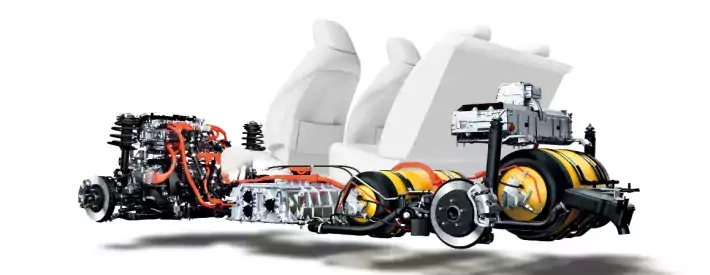Efficiency: fuel cells vs battery electric

While the industry seems to have decided that battery electric vehicles (BEV) are the future of transportation for passenger vehicles, debate still rages about how and where hydrogen fuel cell electric vehicles (FCEVs) fit into the equation.
In terms of end product, both technologies deliver in a very similar way. FCEVs use hydrogen as fuel, which creates electricity to charge a battery to drive the vehicle’s motor. BEVs use pre-stored electricity to do the same thing.
For many, the advantage hydrogen cars have is the ability to refuel much faster than most battery electric cars and generally offer greater range. But, and there’s always a but, FCEVs are more complex, so more expensive.
The benefits of each technology and the debate over which is best will roll on. However, there is a key fact which is often overlooked, and that is the efficiency of these two technologies.
Comparing efficiency
There’s a lot of research out there to show how batteries and fuel cells compare, and the process diagram below shows the efficiency losses that both technologies have to contend with.
The result from the data shows that overall efficiency for the FCEV is 22% and is 70% for the BEV.
The difference is perhaps not that surprising because whenever energy is converted from one form to another, some of it is lost. Transportation is a major issue with H2, but the biggest losses are the conversions to and from electricity. I’m sure we could find slightly different figures with some further research, but they will still show that, broadly speaking, FCEVs use at least three times more electricity than the battery electric vehicle.
That does raise the question as to whether fuel cell vehicles are viable, and that’s still being debated depending on the application. But it doesn’t mean that BEVs aren’t issue-free.
One question relating to the use of BEVs, that is often mentioned by critics of the electrification of transport, is: what would happen if we all plugged them in to charge at the same time?
Pros and cons
In simple terms, the answer would be that it would cause a huge problem as the grid capacity is nowhere near big enough to cope. Interestingly, this oversimplified answer is often cited as good evidence for developing hydrogen vehicles. In fact, the evidence actually suggests that battery vehicles would be better, as less electricity is needed.
Of course, the answer to these sorts of questions is never that simple and full of nuance. As we develop more green energy generation (wind and solar, for example), it may be sensible to use it to create hydrogen as a storage medium when more electricity is being made than can be used.
Looking ahead
My view is that BEVs will be the future for the majority of light vehicles, but as hydrogen fuel cells are already used in some passenger transport (think Toyota Mirai), there’s still room for it to grow. Commercial (heavy vehicles) will be FCEVs, as the hydrogen can be stored at the depot, reducing transport costs. Plant vehicles will burn hydrogen. It may even be sent via pipelines in the future.
So, in the question of battery versus hydrogen, the answer is both.




